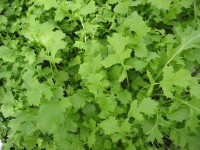Nitrates are good for you
If you live at a northern latitude, your government probably warns you against eating “too much” spinach and beets. When there is little sunlight, these vegetables contain large amounts of nitrates which could turn into nitrites, which in turn could turn into nitrosamines that are thought to cause cancer. The Dutch government recommends no more than two portions of nitrate rich vegetables a week. Unfortunately many green leafy vegetables contain nitrates (kale is a notable exception).

This restriction is not based in science. Let’s look at some opposing views:
One of the most interesting pieces of evidence found by the Oxford group involved workers in a factory producing ammonium nitrate fertilizer. If you go to such a factory, you can taste ammonium nitrate in your saliva within a minute or two of arriving, so if anyone was to have an enhanced risk of stomach cancer from nitrate, it was the workers in that factory. But they did not; their death rate from stomach cancer was the same as that of workers with comparable jobs in the same area. And the workers in the fertilizer factory were not just no more prone to stomach cancer than the others, they were actually healthier, in that they had lower death rates from heart and respiratory disease. Could nitrate might actually be good for you? According to the new medical research, the answer is, yes. — Are you taking your nitrate? T M Addiscott & N Benjamin (update April 24, 2006: this article seems to be unavailable at the moment. The WayBack Machine has an archived version).
Scientists from Netherlands based Wageningen University agree:
Although vegetables are a major source of dietary nitrate, scientists have concluded that the benefits of eating them far outweigh any potential risk of their contribution to nitrite levels in the body. In fact, the conversion of dietary nitrate to nitrite has antimicrobial benefits in the mouth and stomach. Some epidemiological studies show a reduced rate of gastric and intestinal cancer in groups with a high vegetable-based nitrate intake. — Are foods containing nitrite or nitrate safe? (more on nitrates from WU)
Dietary nitrate may also protect against dental caries, food poisoning and ulcers.
Leafy green vegetables are essential to health. They are great sources of calcium, iron, vitamin A (from carotenoids), Vitamin C, vitamin K, Folate and many more vitamins, minerals and phytonutrients.
It’s spring! Go and eat turnip greens!